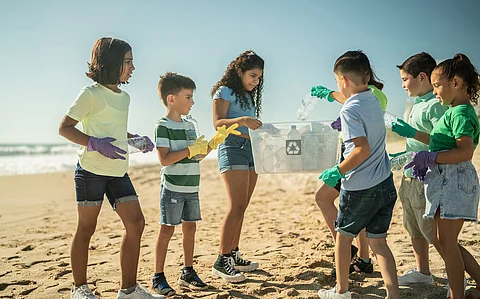

The global plastic treaty discussions highlight the need for public understanding, stakeholder engagement, and scientific progress.
While states agree on the importance of awareness and research, they differ on the extent and binding nature of these commitments.
Proposals include an independent science body and regular data publication, aiming for evidence-based decision-making and enhanced public access to information.
Article 18 addresses the importance of fostering public understanding, stakeholder engagement and scientific progress to support the effective implementation of the plastic treaty. It recognizes that tackling plastic pollution extends beyond policy and infrastructure—it also requires informed societies, robust education systems and sustained investments in research and innovation.
Broadly, states support the inclusion of provisions on awareness and research, though they differ in how far-reaching and binding these commitments should be. Several countries, including the United States, proposed mechanisms to institutionalize scientific input into the treaty process. Their recommendation for an independent science body—distinct from state, industry or NGO affiliations—signals a push for evidence-based decision-making grounded in neutrality and transparency. Others, like Sri Lanka, stressed the value of publishing regular data on plastic flows to enhance public access to information and build trust.
Small Island Developing States (SIDS), including Pacific Island countries and Fiji, emphasized the need for context-sensitive education and outreach, especially for vulnerable groups. Their proposals also encouraged separating research and innovation into a standalone focus, reflecting its strategic importance in developing system-wide solutions and sustainable alternatives.
Thailand and others advocated for expanding the scope of public education and scientific research to reflect the full life cycle of plastics, from production to waste. This shift aims to support systemic change rather than reactive responses. Similarly, language around sustainable consumption, circular economy approaches, and socioeconomic dimensions of plastic use gained traction among a group of like-minded states.
However, some divergence remains. Saudi Arabia and a few other countries sought to soften the language of the article, replacing prescriptive terms with voluntary ones and narrowing the breadth of obligations. These proposals suggest a preference for flexibility over standardized global mandates, reflecting concerns about administrative burden or national sovereignty.
While most states agree on the value of awareness and research, differences persist over how directive these measures should be.
This is a click to zoom map. View the larger image by clicking on it